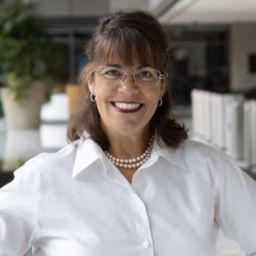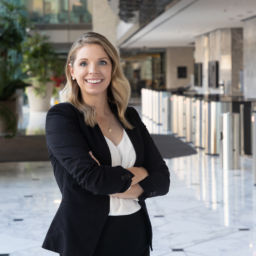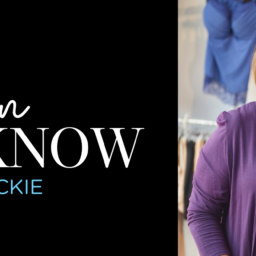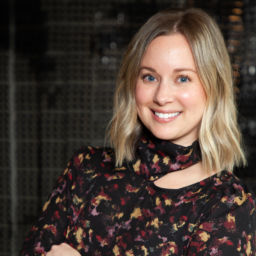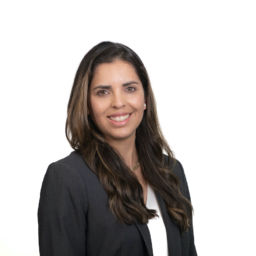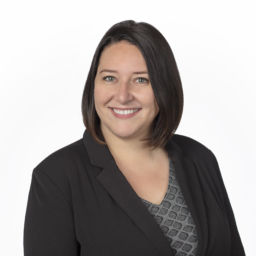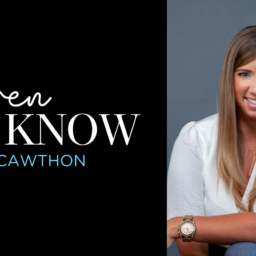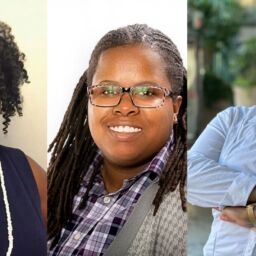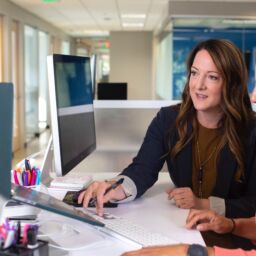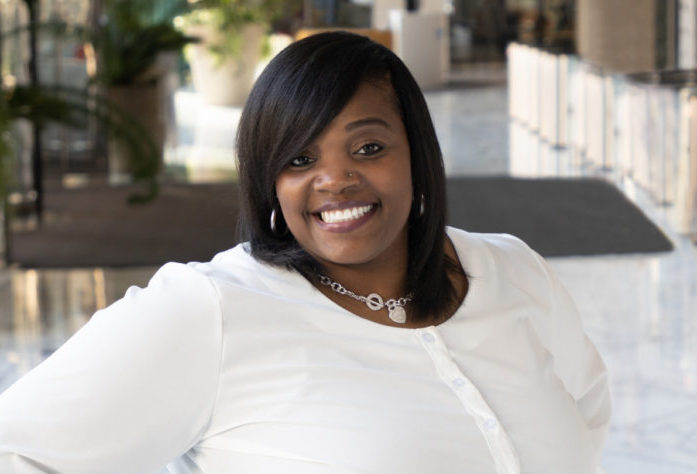
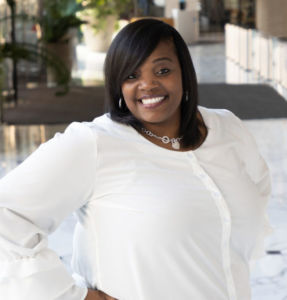
Conversations across Keia Walker’s grandmother’s kitchen table went far beyond the latest neighborhood gossip. At “Big Ma’s” table, she educated the women who huddled around about personal finance, investing, and what it takes to set the trajectory for generational wealth. Keia did more than just listen around that table; She used her grandmother’s wisdom, teaching, and experience to help inspire her future vocation of helping marginalized entrepreneurs face barriers and break through them – one kitchen table conversation at a time.
For Keia, financial wisdom is a progressive idea of freedom, a dedication to the success of her community. As a Black woman in America, freedom is a slogan that insists we have transcended at least some of the imposed limitations of prejudice, acknowledging that there is still an uphill journey to climb. The word freedom should give the same power to each individual that hears it. The power to be bold and the freedom to pursue economic and financial independence.
For an entrepreneur, when an idea comes to fruition and starts to gain traction, the harsh reality of a lending denial can be heartbreaking. But this scenario is all too familiar; even when all the paperwork and requirements seem to be met, many small businesses face challenges in getting access to lending opportunities. Unfortunately, the denial rate for some is greater than others, signaling a need for both greater reform and systemic change.
“Historically, the LMI (low-to-moderate household) community has been excluded from lending resources due to challenging barriers. Income brackets or zip codes do not confine talent and desire,” shares Keia, who serves as the Senior Director of Lending for Indy Chamber’s Entrepreneur Services Team.
The statistics on loan approvals for marginalized groups show trends that reinforce the need for Keia, her colleagues, and their shared purpose of equipping entrepreneurs with support and resources to achieve their dreams. The loan approval rate for Black business owners is less than half of the approval rate for white business owners, according to Federal Reserve data. Pair that with generations of housing discrimination experienced by Black families, and it’s no wonder that when entrepreneurial aspirations manifest, the road to getting there is rife with struggle.
When barriers arise for entrepreneurs in Central Indiana, Keia and her team are on the front line, ready to support individuals traditionally excluded from support systems and resources.
INDIANA ROOTS WITH A PURPOSE GROWN IN TEXAS
Keia grew up in South Bend, IN, and got her start in small business lending while working for Texas-based LiftFund, leveling the financial playing field for the marginalized borrower.
“When I came to Indianapolis, I noticed a need that aligned with my passion and purpose. There was a need for a trusted voice and resource in the community to provide foundational knowledge and access to capital to grow and scale a business. There was a need for a trusted voice and resource in the community I serve,” Keia says.
As the Senior Director of Lending, Keia is responsible for the strategic development of the Indy Chamber’s Community Development Financial Institution (CDFI), along with leading the lending space for marginalized communities. In 2019 the Business Ownership Initiative (BOI) received its CDFI status, meaning more entrepreneurs and small business owners who have experienced systemic difficulties or disadvantages can access the financing and other resources they need to advance inclusive entrepreneurship. BOI is currently housed within the Entrepreneur Services Division of the Indy Chamber.
Keia’s work is driven by more than just talent and a caring heart. She views her vocation as a means to drive real change in her community, perpetuating her grandmother’s legacy, who instilled her teaching from Keia’s adolescence and gave real meaning to the idea of being free.
“My grandma left home at a young age. She had to figure it out on her own. Her generational impact was about feeding her family … putting something on our table. What was essential to my grandma was teaching her community and family to survive. Due to having to grow up at a young age, she learned a lot and was forced to be an adult by working in a cotton field in the South. She passed down her business insight and experience to the generations after her and made sure we knew it’s not how you start your journey, it’s how you finish. And when you’re creating generational wealth, you never think of an end. You think, ‘How can I teach the next generation a way to survive, thrive, and be free?’ I take that to all my business clients – the generational progression of freedom and business ownership through the lens of someone from their community,” Keia says.
Keia’s clients often arrive at their meeting frustrated and let down by traditional lending institutions due to certain barriers, even those they’ve previously held solid banking relationships with. Getting denied capital can feel like defeat, allowing doubt to set in about their businesses’ viability and their ability to operate it. In reality, so much of what’s happening is due to a lack of resources and support – two things Keia helps provide.
“I meet the individuals in the community that need me where they are. I go to them. I want to be their trusted source that looks like them, understands their struggle, and knows how to get help when they’ve been denied in the past,” Keia says. “Yes, they were denied capital, and they’re under-exposed to resources, but they matter. They deserve the same luxury of freedom.”
UPLIFTING AT THE TIME OF GREATEST NEED
Since the onset of the pandemic, the Indy Chamber’s CDFI scaled the number of loans it offered, infusing entrepreneurs with much-needed cash and business-sustaining advice to help them be successful for the long haul, despite the challenges.
“The momentum we gained by addressing the needs of the small business community in the Indianapolis area has allowed us to critically look at our day-to-day services for that community and increase how we support them. A return to normal post-pandemic is not what we want, and it’s not good enough. We need to acknowledge the work we did and grow,” Keia reflects.
The size of the job ahead isn’t lost on Keia and her colleagues at the Indy Chamber. It’s a task that is ever-evolving as economic factors change seemingly overnight. Case in point: Inflation data provided by the U.S. Bureau of Labor Statistics cites a 9.1% increase as of June 2022 – a 41-year high. Entrepreneurs may still face challenges in the days ahead, even after the economy’s recovery from pandemic restrictions. The uncertainty of supply chains, availability of essential supplies, and varying customer demand make Rapid Response Loans and other funding solutions through the Chamber more critical than ever.
“We’re front line. Being able to provide essential work to a community in need at a time when the whole world was looking for help felt important, impactful, and every great adjective there is,” Keia says.
Relationships are what drive Keia and allow her to connect her clients to resources and funding. Her ability to create rapport with people and get to the root of what they need is one of her many talents. Sometimes, the support that’s needed is a loan to make payroll when traditional finances aren’t available. Other times, it’s a small inventory loan that leads to a meaningful partnership where Keia’s expertise and the Chamber’s resources can come together and assist.
“A client grew her sales 140% after receiving a small business loan from us. And because of the relationship we have, she’s staying on as a business client and is receiving coaching to grow and scale her business. We’re providing a holistic approach to coaching, resources, and capital to help continue her positive business growth,” Keia says.
TRANSFORMING THE ENTREPRENEURSHIP ECOSYSTEM IN INDIANAPOLIS
The vision for an equitable and accessible climate for entrepreneurs in Central Indiana is an endeavor worth fighting for. But the work doesn’t end with the tailored support and access to capital BOI provides. Beyond what the BOI and Keia can do in their capacity, residents and fellow entrepreneurs in Indianapolis play a vital role in improving the business landscape for everyone.
“We’re thankful to be in an entrepreneurial ecosystem that doesn’t view our work as a competition. There is a need. The pandemic proved that. Business Ownership Initiative is just one organization. But there’s only so much one group can do on their own. Where we now need to take this progress is to look at a more collaborative approach to help and really start to be part of the community,” says Keia. “That is the only way this success continues if we meet individuals where they are. That is how we build trust and create a community that knows how to support marginalized entrepreneurs wholly. We are here to help from a financial standpoint and a resources standpoint to get people answers.”
Keia is passionate about her work, and she also understands what it’s like to be in a financial bind and in need of support from someone who is truly invested.
“I can relate to my clients because I’ve been where they’ve been. In college, I messed up my credit twice. But my matriarch, my grandmother, and my mother held me accountable and explained to me the importance of credit, and I was immediately on a budget plan. So, I get it. I’m in their shoes. I wasn’t born with a silver spoon in my mouth,” recalls Keia. “I was blessed because my grandmother and mother passed on their financial knowledge and taught me what it looks like to take care of your community.
While the job ahead is significant, it’s one that Keia is willing to undertake, and she understands the challenges.
“Areas of need will not transition into wealthy enclaves overnight, nor will one person’s efforts combat the many pockets in our nation where institutional racism or lending disparities still exist. Struggle is struggle, even in a country that boasts freedom for all. But it’s a start in a community I call my home, on a path to greater financial freedom.”
DRIVING LASTING CHANGE FORWARD
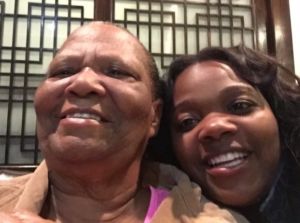
“For Indianapolis to be a more welcoming community for marginalized communities, we need to remove the red tape,” says Keia. “It’s all about who you know and what you can provide them to get ahead. When an opportunity arises, there’s room for more than one Black woman on the panel, on the board, or on the leadership team. We can all be there supporting each other and supporting our community.”
Beyond what work needs to be done outside of the Black community, Keia shares that individuals within it have an opportunity to lift each other up.
“The African American community cannot afford to operate in silos. There can be no cliques,” Keia says. “If we want everyone to lift Black women up in times of crisis and to truly have a seat at the table without being the token person in attendance, we have to create a space for Black women to lean on one another.”
Taking on generations of inequity, breaking down barriers, and supporting clients in their most vulnerable moments can take a physical and mental toll on even the strongest person. But when the stress and heaviness of the work starts to build up, Keia has a reset button, and it’s a plane trip to visit the place she calls home, Houston.
“My grandmother always taught me to take care of myself; you can’t pour from an empty glass. When the stress gets to me, I can’t pour anymore. And if you cannot mentally take care of yourself and your work, you can’t be there fully for your clients. When I get to that stage in my work, I need to take a step back and think, ‘What would Big Ma do?’ When I truly need to get a clean slate, I travel back to Houston. My family is there, and my mentors are there,” Keia says.
“When I’m back at that kitchen table, it puts a fire back in me. It fills my cup. It puts me in the right mindset to show up for my community and say, ‘I got this.’”
Created in partnership with Indy Chamber.
Natalie Derrickson is a communications strategist who’s been in love with Indy, and its entrepreneurial spirit, since moving to the region in 2008. You can connect with her on Instagram, Twitter, LinkedIn, and her website.
All of our content—including this article—is completely free. However, we’d love it if you would please consider supporting our journalism with an Indy Maven membership.








